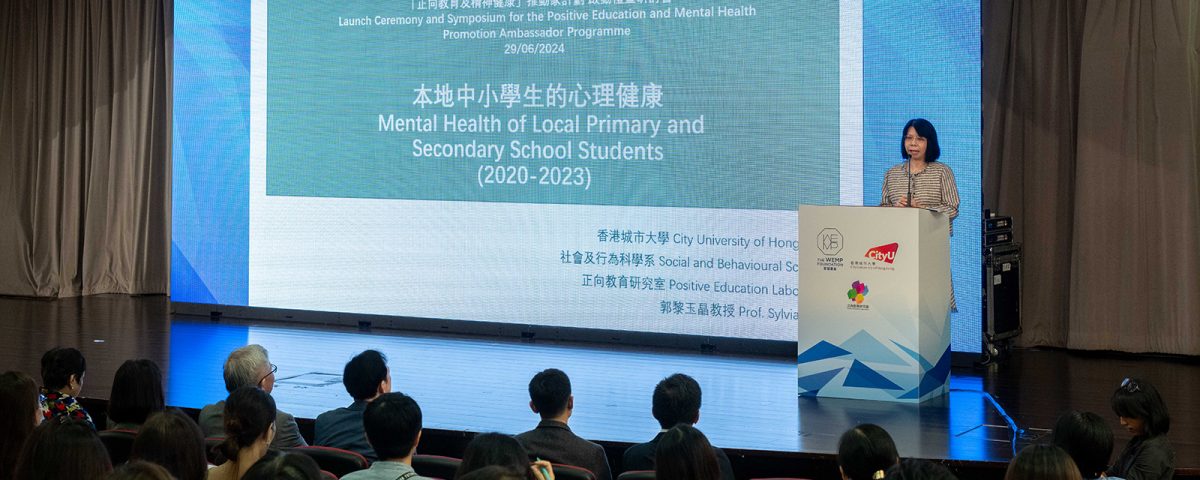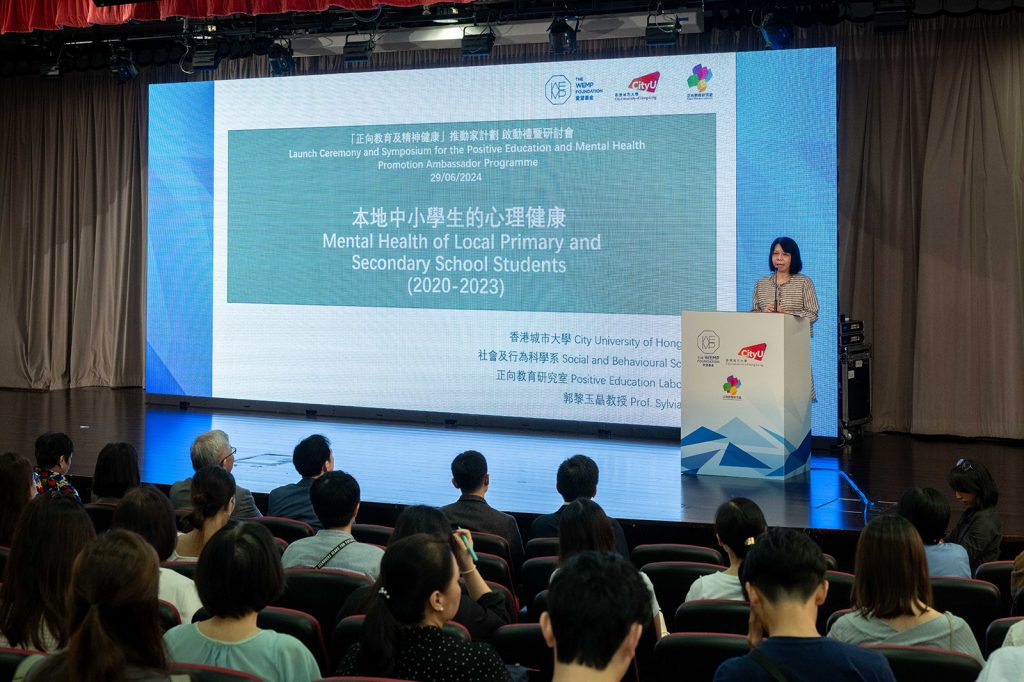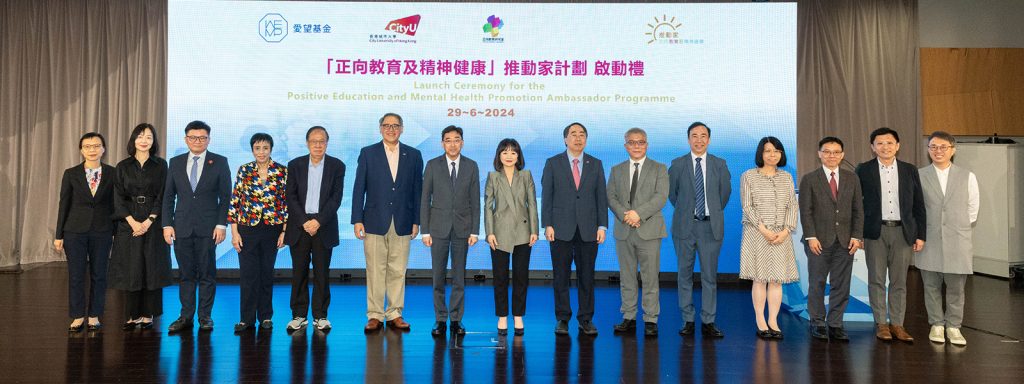
Pedagogical Activities Invite Students to Perceive Gesture as Knowledge in Public Speaking
29 November 2024
Chinese Christianity as a New Agent to Remake Sino-Western Relations
29 November 2024Positive Education Programme Promotes Mental Well-being of Local Youth, Teachers and Parents

Principal investigator: Prof Sylvia KWOK LAI Yuk-ching (Department of Social and Behavioural Sciences)
Globally and locally, youth facing mental health issues has been on the rise in recent years. In supporting child and adolescent mental health, schools and families play an essential role to observe the signs of children’s mental illness and intervene at the first place. CItyUHK’s Department of Social and Behavioural Sciences (SS) has established the Positive Education Laboratory to promote positive education for children, adolescents, parents, teachers in schools and helping professions. The convenor, Prof Sylvia KWOK LAI Yuk-ching, who is the Professor of SS, has been working with other SS faculty members to conduct training on positive education for 400 primary and secondary schools in the past decades.

Professor Sylvia Kwok Lai Yuk-ching recommended that schools adopt the whole-school positive education approach to enhance the mental health of parents and teachers.
On 29 June 2024, the Positive Education Laboratory joined hands with The WEMP Foundation (WEMP) to hold the Launch Ceremony and Symposium for the Positive Education and Mental Health Promotion Ambassador Programme. At the symposium, Prof Kwok shared the results of a mental health survey conducted among 4,002 local primary and secondary school students, teachers and parents. In terms of students’ mental health, nearly one-third of primary students perceived themselves as having a moderate to high level of depression (27.4%), anxiety (21.6%) and stress (29.2%). Additionally, 40.6% of primary students reported moderate or high levels of fear related to the pandemic, reflecting the highest levels of depression, anxiety and stress during 2020-21 over the past three years. As for secondary students, although more than 82.7% of the respondents believe they possess moderate or high resilience, they also experience moderate to severe levels of depression (46.4%), anxiety (38.3%) and stress (52.1%).
Regarding parents’ mental health, secondary student’s parents exhibit higher levels of depression, anxiety and stress than primary students’ parents. Only about 12.6% of primary students’ parents experience moderate or high levels of depression, and 7.1% report anxiety symptoms. In contrast, over 36.3% and over 15.5% of secondary student’s parents experience moderate or high levels of depression and anxiety, respectively. During the COVID-19 pandemic, over 75.3% of primary students’ parents faced moderate or high stress levels related to parenting.
Regarding teachers’ mental health, more than 24.1% of primary school teachers and 21% of secondary school teachers had scores indicating moderate or high negative emotions. Over the past three years, primary school teachers experienced an increase in negative emotions, with significant declines in job satisfaction and satisfaction with school management. Among primary school teachers, over 16.1% reported facing moderate or high stress levels during the pandemic.

CityUHK joined hands with The WEMP Foundation to hold the Launch Ceremony and Symposium for the Positive Education and Mental Health Promotion Ambassador Programme.
The survey found that the overall well-being, depression, anxiety and stress of students can be predicted by parents’ negative emotions, physical condition and stress. If the relationship between parents and students deteriorates, along with their physical condition, it may exacerbate negative emotions in students.
To strengthen positive emotions and promote mental well-being in students, the Positive Education Laboratory will launch a two-year Positive Education and Mental Health Promotion Ambassador Programme between 2024 and 2026, which is fully funded by WEMP. 20-hour certificate courses and related activities will be provided for free for teachers and parents to promote positive education and improve their mental health. Prof Kwok believes that the programme can effectively help students, parents and teachers face challenges from studies, life and work with a positive mindset. Learning various emotional coping strategies and leveraging character strengths can enhance learning motivation and resilience while reducing the occurrence of negative emotions.
Learn more about The WEMP Foundation and the Positive Education Laboratory:
